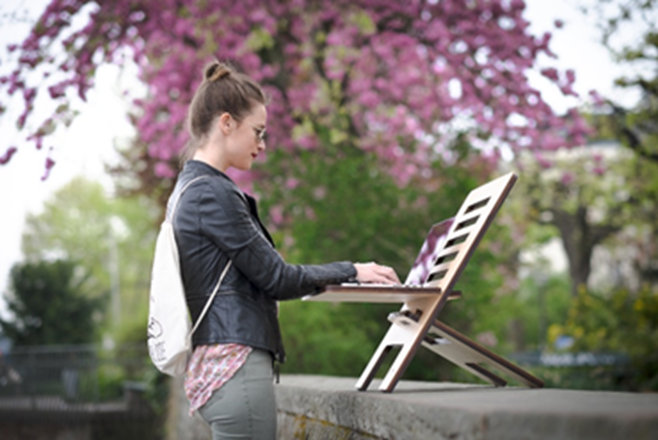
To enhance your health and wellness, look to Nature’s Arc Organics for quality CBD products.
Working with Wellness as a Remote Worker
The COVID-19 pandemic altered much in our lifestyle. For one, society discovered that remote work is not only possible, but it can also be constructive: less traffic congestion, parental flexibility and for employers, even increased profitability.
It does, however, have drawbacks. ‘Quarantine 15’ became an oft-repeated phrase, describing a new weight gain among many who struggled to adjust to new routines and social isolation measures.
We know these struggles still exist outside of a pandemic; the ‘Freshman 15’ is often used to describe the same effect among first-year college students. While the research suggests the typical weight gain among college freshmen is much fewer than 15 pounds, it does conclude that adjustment periods can lead to increased tendencies of weight gain.
Wait, it’s not just about weight
Healthy weight is just one wellness factor. Healthy habits, including but not limited to nutrition, lead to overall well-being. Establishing a balanced routine that incorporates movement, breaks, and healthy sleep patterns can improve mental acuity and thus, work performance and productivity. While one advantage of remote working is flexibility, keeping a routine in place instills a sense of stability – particularly during times of uncertainty.
2020 was also the year we heard a lot about self-care – the idea that you should make time for yourself, doing the things that bring you joy, and increase your positive feelings about who you are.
Stress and weight
People often express stress as a feeling – “I feel so stressed out” – and while it is something we feel, it creates a physiological response in our bodies, beginning in our brain and affecting our physical well-being. This is why it is so important to recognize those nagging feelings of anxiousness or apprehension before they manifest themselves and create anxiety.
It’s common to turn to food when we’re feeling stressed, and many of us have our favorite “comfort foods.” Unfortunately, many comfort foods also facilitate weight gain, which can add to our stress in an unkind cycle.
Take advantage of your remote work situation to learn more about mindfulness, and try activities that can help you on that journey. Yoga and meditative activities are good places to start; in fact, the stress-reducing benefits of yoga, such as lowering blood pressure and cholesterol, are conducive to a healthy heart. It’s also an activity you can do with other family members who may be working or studying at home, breaking up the day with some positive family interaction.
If you’re interested in learning how to lose 15 pounds in a month, you can achieve this goal through small adjustments. First, avoid popular diets that can harm your metabolism. Instead, focus on foods that boost digestive health — think dark, leafy vegetables, beans and legumes, and yogurt. Aside from enhancing digestion, these foods are also high in protein, which keeps you feeling fuller for longer. Second, physical activity, in general, has long been recognized as a stress reliever as much as a weight management and strength builder, and it doesn’t require a gym membership.
Those on a budget can look out for basic, used home gym equipment, or for those willing to spend more, “smart” fitness equipment provides motivation and social camaraderie from virtual workout peers and trainers. The more you move, the better you feel, and the more you’ll want to move!
Wellness from a distance
Lifestyle changes are an adjustment but don’t allow those adjustments to overwhelm you. You’re not as constrained as it may sometimes appear. Technology allows us to collaborate electronically for work, and connect socially with friends and family, but don’t be chained to these screen interactions. If you live in a neighborhood with other remote workers or students, consider setting up some porch or sidewalk time over lunch or just for a 15-minute snack or coffee break. Keeping your social interactions maintains a sense of belonging to a community, whether it’s your work or residential community, and is a way to relieve tension and stress – all key to overall health and wellness.
Photo by Unsplash




